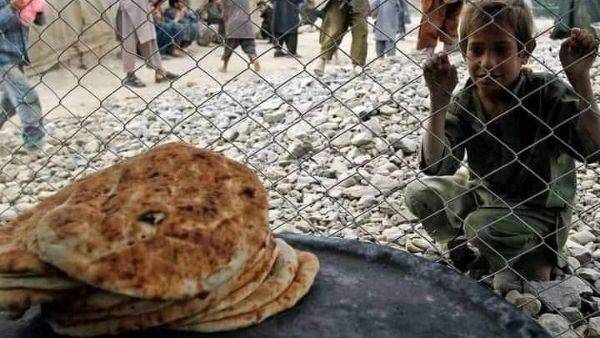When the U.S. military pulled out of Afghanistan in August, the Taliban immediately seized control and the international community acted quickly – freezing Afghan assets and foreign aid to pressure the Taliban to negotiate. To date, those negotiations haven’t happened.
Today, 38 million Afghans find themselves facing one of the worst humanitarian crises on the planet with millions unable to pay for food or basic goods, putting half the country at risk of starvation this winter.
“I’ve been with WFP for a long time, 20-plus years, and I’ve never seen a crisis unfold and escalate at the pace and scale that we are seeing,” Mary Ellen McGroarty told 60 Minutes correspondent Sharyn Alfonsi.
McGroarty, director of the United Nations World Food Program in Afghanistan, said nearly 23 million people in the country are living in what the WFP calls “severe food insecurity.”
“People don’t have jobs, they can’t access cash. You know, food prices are going up,” McGroarty said. “The currency is depreciating. Fuel prices are going up. So for us, as WFP and humanitarian agencies, we’re now really in a race against time.”
McGroarty has had to personally negotiate with the Taliban in order to get food to those in need.
“When you say you have to, you know, reach out to the Taliban and talk to them,” Alfonsi said to McGroarty, “how does that work as a woman?”
“Being a woman in Afghanistan at the moment is, yeah– it’s challenging,” McGroarty said. “I think they realize I’m the head of a U.N. organization, so they do have to meet with me. And that’s the way it is.”
McGroarty said negotiations between humanitarian groups and the Taliban have happened throughout the last decade as the Taliban controlled most of Afghanistan even when there was a democratically-elected government in Kabul. Those talks have had some progress. Alfonsi and her 60 Minutes crew were able to travel to areas with UNICEF that were previously off-limits, and she visited a community-based school for girls established through the negotiations.
Still, millions of school-aged girls in Afghanistan are not being educated. And women are completely prohibited from attending college.
After months of negotiations, Alfonsi was able to speak to the Taliban health minister, Dr. Qalandar Ebad, about the health crisis facing the country and the lack of concessions his government is making to unlock aid dollars.
“The international community has spoken pretty clearly and said, they’re ‘not gonna unfreeze funds unless there’s a guarantee that all girls will be educated in Afghanistan,'” Alfonsi told Ebad. “Is the Taliban willing to consider any kind of movement in that area?”
READ ALSO: Michelle Bachelet Briefs UN Committee on “disastrous” Humanitarian Situation in Palestine
“I think it’s a political issue,” Ebad said. “Education is a separate chapter and department and health is a different department.”
See Alfonsi’s full report on the humanitarian groups who have been left to pick up the pieces in Afghanistan and negotiate with the Taliban to avert a global catastrophe, Sunday on 60 Minutes at 7:30 p.m. ET and 7 p.m. PT.













